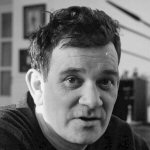|
|
 |
 |
|
|||||||||||||||||||||||||||||
|
|
|
|
||||||||||||||||||||||||||||||
|
|
|
|||||||||||||||||||||||||||||||
|
|
|
|
||||||||||||||||||||||||||||||
|
|
|
|
||||||||||||||||||||||||||||||
|
|
|
|||||||||||||||||||||||||||||||
|
|
|
|
|
|||||||||||||||||||||||||||||
|
|
|
|||||||||||||||||||||||||||||||
 |
|
|
|
|||||||||||||||||||||||||||||
|
|
|
|||||||||||||||||||||||||||||||
|
|
|
|
|
|||||||||||||||||||||||||||||
|
|
|
|||||||||||||||||||||||||||||||
|
|
|
|
||||||||||||||||||||||||||||||
|
|
|
|||||||||||||||||||||||||||||||
|
|
|
|
|
|||||||||||||||||||||||||||||
|
|
|
|
|
|||||||||||||||||||||||||||||
|
|
|
|||||||||||||||||||||||||||||||
|
|
|
|
||||||||||||||||||||||||||||||
|
|
|
|
|
|||||||||||||||||||||||||||||
|
|
|
|||||||||||||||||||||||||||||||
 |
|
|
|
|
||||||||||||||||||||||||||||
|
|
|
|||||||||||||||||||||||||||||||
|
|
|
|||||||||||||||||||||||||||||||
|
|
|
|
|
|||||||||||||||||||||||||||||
|
|
|
|||||||||||||||||||||||||||||||
|
|
|
|||||||||||||||||||||||||||||||
|
|
|
|
|
|||||||||||||||||||||||||||||
|
|
|
|||||||||||||||||||||||||||||||
|
|
|
|
|
|||||||||||||||||||||||||||||
|
|
|
|||||||||||||||||||||||||||||||
|
|
|
|
|
|||||||||||||||||||||||||||||
|
|
|
|||||||||||||||||||||||||||||||
|
|
|
|
|
|||||||||||||||||||||||||||||
|
|
|
|||||||||||||||||||||||||||||||
|
|
|
|
|
|||||||||||||||||||||||||||||
|
|
|
|||||||||||||||||||||||||||||||
|
|
|
|
|
|||||||||||||||||||||||||||||
 |
|
|||||||||||||||||||||||||||||||
|
|
|
|
|
|
|
|
|
|
|
|
|
|
|
|
|
|
|
|
|
|
|
|
|
|
|
|
|
|
|
|
|
|
|
The end of fiction, the triumph of non-fiction - a personal view
I live in Northern Ireland. I publish in Ireland and Britain, occasionally in Europe, and even more occasionally in the United States. I am a novelist, mostly. I am only qualified to talk about novels and stories and I am only qualified to talk about the British Isles. When I started in 1985, fiction was king (and queen). ĎWrite a novelí, my agent always said on those rare occasions when he deigned to speak to me. Of late, however, he has sung from a different hymn sheet. ĎFiction is finished,í he says, Ďthe future is non-fiction.í Heís right. In these islands at least, publishers donít want to publish fiction like they used to, other than that of a few stars, such Ian McEwan, Martin Amis, JK Rowling or that of good looking recent graduates of the Creative Writing MA at the University of East Anglia. They want to publish non-fiction. Why? I think itís like this. Once upon a time, if you were say, a Victorian housewife living in Bath, contented and relatively prosperous and literate, the only way you could find out about the world beyond Bath was to read, and amongst the books you that you would read novels would have featured hugely. You would have read a lot and through your reading youíd have found out about what you didnít know, and the way all this information would come into your head would have been via that marvelous organ Ė your imagination. With this part of the brain you would have turned the words on the page into pictures in your head. And your imagination would have been very good at doing this because you would have made it do an awful lot of this kind of work. You would therefore have found it easy to take long complicated books (by the likes of Sir Walter Scott and Charles Dickens and William Makepeace Thackeray) and turn the words that were on the page into marvelous flickering images inside you skull. In the twentieth century all changed. First came the cinema which did surprisingly little damage to the imagination and then came television and thatís when the rot set in. Television in the west (and it is the West and in particular the British Isles Iím talking about) has given people access to what they used to get from books, especially novels. If you are in a housewife in Bath today (assuming she exists, this wife of Bath) you donít have to go to the bother of reading (which requires effort) if you want to find out about the world because you can now find out everything you could possibly want from television or latterly the internet. There is and there has been an awful lot of good television (as well as a lot of rubbish) and as far providing information goes, itís done a reputable and commendable job. However, television has had two deleterious effects. One, because it provides the pictures that the imagination used to provide, we donít exercise our imaginations anything like as much as we once did. The result is that our imaginations have grown flabby and lazy and ineffective and defective. This means that it is therefore that much harder to extract images and narrative sustenance from a book than would have been case with our ancestors. They could roar through one hundred thousand words in a few hours and get a stream of marvelous images as a reward. But we canít do that anymore. For us, generally, itís hard work steaming through a book and we get a headache. How much easier to turn on the box and let what ever is showing stream into our brain. The other, deleterious effect of television is that it has made us suspicious, especially of fiction. Television (and the internet) has shown us just about everything that anyone on this planet has done, or has thought about doing, or would like to do. Everything. As a result fiction, in comparison, has started to look pretty pale and sad and paltry and inadequate. Fiction, we have discovered, has never been as rich and surprising as real life. That in itself, a melancholy discovery, has, in turn, undermined our collective respect for fiction writers. We always thought that novelists were telling us the most extreme things about human experience. What we discovered was that that wasnít true. Television showed us things were much more extreme than novelists had ever told us. And from that, in turn, has sprung the new appetite, for stories that are true, for stories that really happened, that are authentic, and that have behind them, real people and real experiences. Readers want that and publishers love that. Thereís no better way to sell a book than to wheel out the writer of that book and have them say, on television, everything in my book is true. It happened to me. It happened to my wife. It happened to whom ever. I am writer and if I have to write non-fiction to earn a living then I will write non-fiction. But Iím not happy with how things have developed. A story, a made up story will put you into a trance if its half decent and you will lose yourself in the pictures that you create inside your head as you read. Thereís no greater pleasure than to lose yourself in a story (and it may even be better than sex). Now, to be sure, when we read non-fiction, we also make pictures in our head, but very few non-fiction books will transport you like a novel. You just donít lose yourself in non-fiction like you do in fiction. The other problem with non-fiction, of course, is how bogus so much of it is. So much of it is fiction, or quasi fiction masquerading as non-fiction. I believe non-fiction writers have a duty to try to tell the truth. Sadly, in case after case, they lie, conflate, suppress, omit or invent. And this brings me to perhaps the strangest part of this whole story. Novels, which are lies, and which are sold as lies, and marketed as lies, and which everyone knows are invented, are in decline but non-fiction, which is supposed to be the truth, or some sort of truth, is in the ascendant yet much of it is as invented as the fiction it has usurped. And by this fact do we know that truly the world is mad. Carlo Gťbler Tuesday 26 September 2006
|
